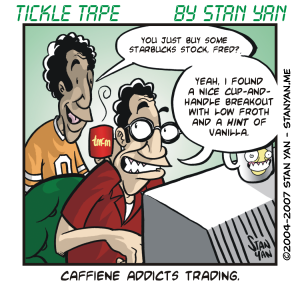When trading the markets, making a quick and decisive decision can be difficult. There are many sources of information to sift through, and many times, you don’t actually know if you’ve made a good decision until you’ve closed out a position and taken home the profits. But timely decisions are imperative, and in the end, it is essential that you learn to just go with your gut, decide, and take action.
Determining where a stock price will go next is hardly rocket science. In many ways, however, it’s more difficult. Rockets follow the laws of physics, and there are those times when a significant number of factors can be measured, analyzed, and integrated to the extent that the path of the rocket can be predicted with scrupulous accuracy. In the markets, there are numerous sources of information: Analyst forecasts, media hype, unexpected economic events, and sudden product announcements, just to name a few.
In the end, you don’t know which information is the “true” or which information was fabricated to get the masses to react. Which information has an actual impact is anyone’s guess. The masses can be unpredictable at times. They may not react to information in the way that we expect. In that sense, information is not perfect, and there is nothing you can do about it. You could try to gather as much information as possible, but how much of it will actually impact the market? In the end, you have to take the information you have available, weigh it, and just go with what you think you can do. In making trading decisions, you must accept that outcomes are ultimately uncertain and just make a decision. Don’t think too much. Don’t spend more time than it is worth, and don’t dwell on mistakes.
It’s vital that you think through a potential trading opportunity and get ready to take action, but considering that information about trades is less than perfect, it doesn’t make sense to think and re-think various pieces of information. It’s natural to believe that if you could just think long and hard enough, you would come up with the ultimate decision. But since trading information is imperfect, rethinking imperfect information over and over again isn’t going to get you anywhere. You’ll simply waste a lot of time and energy, time and energy that you don’t have. Once you’ve done a thorough study of the available information, you must accept that you’ve done all you can do and act on it. Part of this means accepting uncertainty. You can’t know exactly what will happen, but as long as you have managed risk, a losing trade isn’t fatal.
Risk management is the key to survival. If you make sure that the potential negative impact of trade is minimal, you’ll allow yourself to relax. And when you are relaxed, you’ll be able to take decisive action because you know that even if you are wrong, it won’t mean much. Also, if you know that the impact is minimal, then you won’t be afraid to sift through information and take quick, decisive action.


